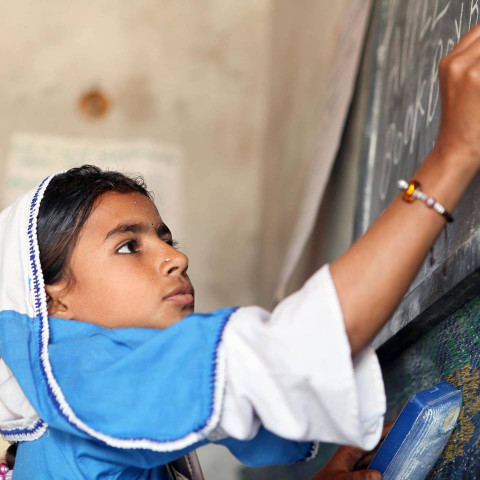Headed in the wrong direction: ‘Flawed policies increasing inequalities in Pakistan’
Experts say inequalities breeding poverty, increasing sense of injustice among the poor

Experts say inequalities breeding poverty, increasing sense of injustice among the poor. PHOTO: facebook.com/OxfamPakistan
They were speaking at the launch of OXFAM’s report on global inequality titled “An Economy for The 1%” at the Sustainable Development Policy Institute (SDPI).
“It is not low growth, but the extreme inequality that breeds poverty,” said economist Dr Kaiser Bengali.
Pakistan is facing sheer inequality that breeds poverty, which in turn increases sense of insecurity and injustice among the people who are living on the margins, he said.
Bengali said economic inequality was a product of social inequality. “There is interpersonal and interregional inequality in Pakistan. Economic policies in Pakistan are killing jobs. They are helping in concentration of wealth in fewer hands,” he was quoted as saying in a press release issued by the SDPI.
He called for increasing the bargaining power of the people living in rural areas by giving them access to resources, industrial and economic activities as are provided to the people in urban areas.
OXFAM Country Director Arif Jabbatr said wealth of the richest 62 people had risen by 44 per cent since 2010. That is an increase of more than half a trillion dollars to $1.67 trillion.
The average annual income of the poorest 10 per cent of people in the world has risen by less than $3 in almost a quarter of a century.
Pakistan Institute of Development Economics Joint Director Dr GM Arif said in the last four decades growth had influenced living standards and almost 1 billion people had moved out of poverty. “The grave issue according to the report, however, is that most of the benefits of growth are going to the upper echelon.”
Arif said labour income had declines over time in Pakistan. “It is not proportional to productivity and growth. Output is going either to CEOs or to the top 1 per cent. Furthermore, institutional support is also in favour of the rich. Be it political or economic institution, it is increasing gap between poor and rich,” he said.
Economist Dr Pervaiz Tahir said addressing inequality was not even on agenda in Pakistan. “It is not considered as a problem,” he lamented.
The report says that the richest 1 per cent now have more wealth than the rest of the world combined. “Runaway inequality has created a world where 62 people own as much as the poorest half of the world’s population … Power and privilege is being used to skew the economic system to increase the gap between the richest and the rest,” the report said.
It said the fight against poverty will not be won until the inequality crisis is tackled.
Published in The Express Tribune, January 19th, 2016.



















COMMENTS
Comments are moderated and generally will be posted if they are on-topic and not abusive.
For more information, please see our Comments FAQ